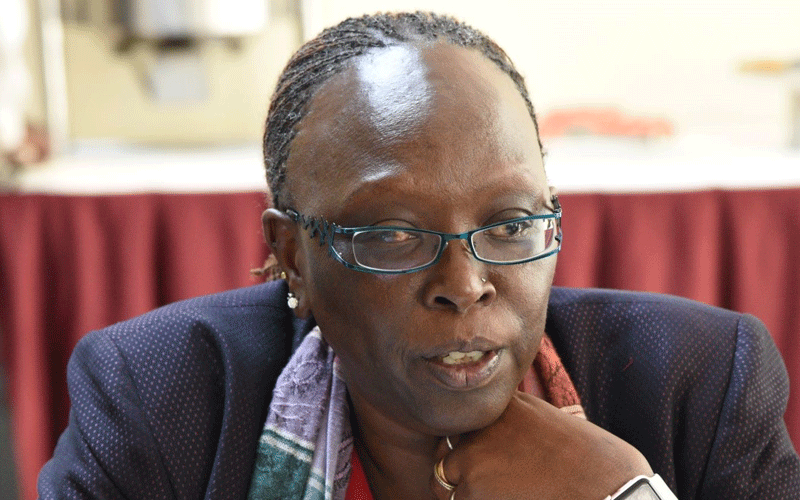Minister in push for Micro and Small Enterprises policy

Lewis Njoka @LewisNjoka
Trade Cabinet Secretary Betty Maina has proposed a raft of measures meant to spur market access which is among major constraints facing Micro and Small Enterprises (MSEs) in the country, a policy document in Parliament has revealed.
Informed by the thinking that for a long time, big businesses have hogged the limelight, shunning the other end of the spectrum – the MSEs – this move intends tochange that narrative.
The proposed Kenya Micro and Small Enterprise Policy, tabled in the National Assembly on Monday fingers poor markets access for both local and export markets as a major issue that stymies growth of MSE’s.
“Majority of micro (33 per cent) and small (27 per cent) enterprises in Kenya reported market access challenges as the most serious constraint to their growth and development,” reads the document in part.
According to the policy item which seeks to inform the minstry’s direction in regard to MSEs, it emerged that individual local customers are the main consumers of MSE products in the country with a negligible proportion participating in the export market.
The CS notes that goods and services produced by the MSEs are regarded as low quality, hence constraining demand.
Business Linkages
Additionally, MSEs are said to have limited business linkages and low levels of collaborations between medium and large farms, hence, becoming a challenge to market access locally.
“There is a low participation of MSEs in the Access to Government Procurement Opportunities (AGPO).
According to the 2016 MSME survey, 0.3 per cent of micro enterprises and 2.8 per cent of small enterprises sell their products and services to the government,” reads the policy document.
In addition to competition from illicit trade, Maina says MSEs are also limited in accessing local markets by factors such as low uptake of intellectual property protection, limited access to market information, and high cost of doing business among others.
They also suffer low access to affordable finance with unstructured business operations, informality, limited information, and weak collateral contributing to their exclusion from accessing credit.
In 2016, only 29 per cent of the licensed MSEs applied for a loan while majority of the unlicensed MSEs (85 per cent) said they had not applied for a loan in three years.
Other challenges facing MSEs in the country, according to the policy document, include a weak entrepreneurial culture where self employment is considered for the less educated and associated with low returns, and low managerial, financial, technical, technological and industry-relevant skills.
Difficulties in securing decent workspaces and storage facilities have a tough business regulatory environment.
SME start-ups
According to the policy documents, small and medium-sized enterprises (SME) start-ups have a high mortality rate, a phenomenon that could be partly attributed to the challenges.
“About 2.2 million MSEs closed within five years with 46 per cent having not made it past the first year of operation.
Majority of these closures were in the trade, accommodation and food services and manufacturing services,” said the policy document quoting a 2016 survey.
To deal with the challenges and strengthen the MSE sub-sector in the country, the policy proposes to entrench an entrepreneurial culture, build skills to enhance capacity, and expand market opportunities for the MSEs.
It also proposes to enhance access to affordable credit, support start-ups to reduce their mortality rate and promote the formalization of the MSEs among other measures.












